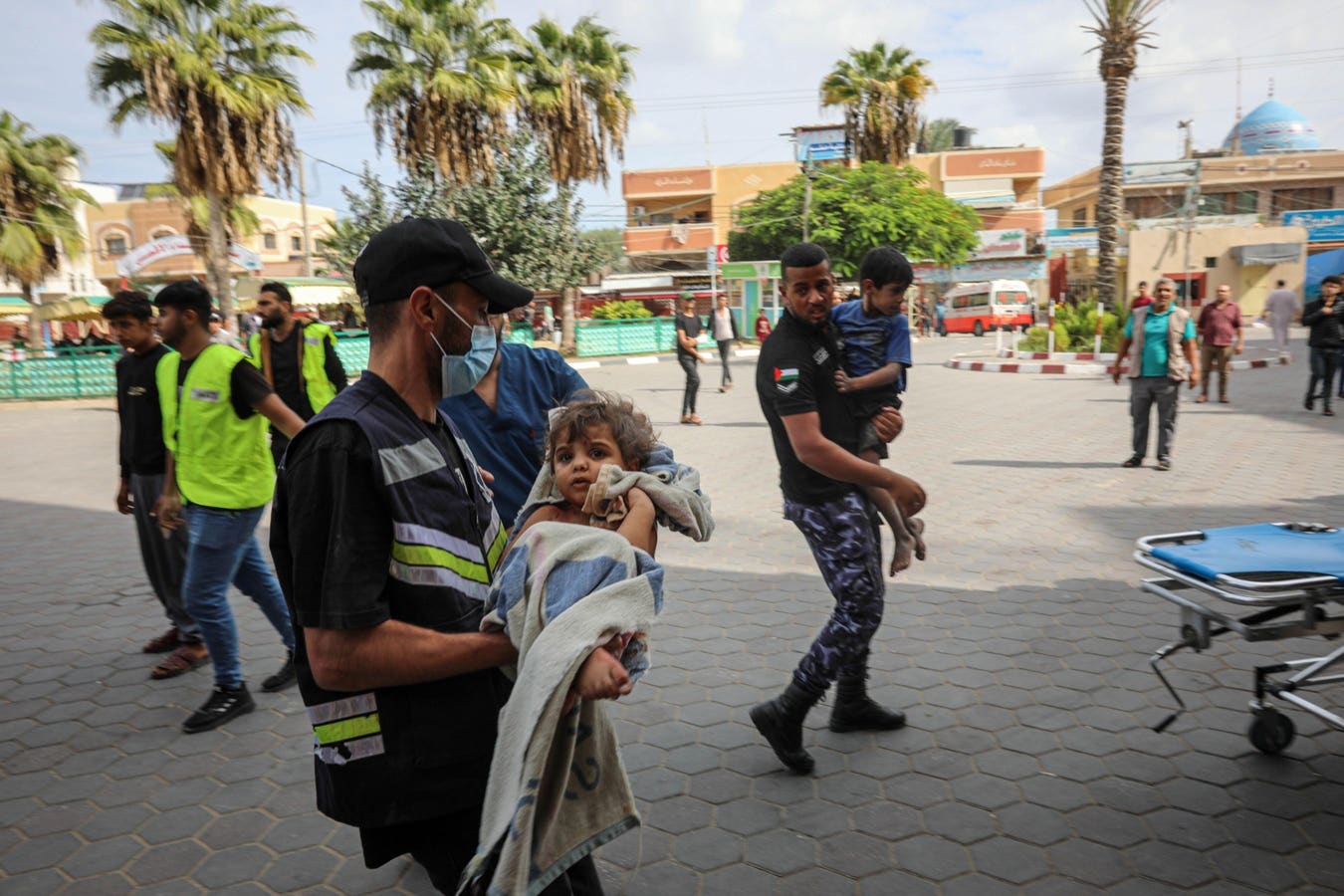Ernest Hemingway once wrote, “Never think that war, no matter how necessary nor how justified, is not a crime.” Hemingway suffered physically and mentally from the horrors of war. His writing often depicted the criminality of armed conflict.
The reality today in Gaza and Israel is unbearable suffering for ordinary citizens. It’s not just the physical injuries and deaths. People are scarred mentally. The trauma particularly impacts Palestinian and Israeli children. And the damage can last a lifetime.
It’s reported that at least 4,000 Palestinians have been killed since Israel began airstrikes on the Gaza Strip on October 7th. This includes more than 1,500 children. These actions are reprisals for a terrorist attack by Hamas in Southern Israel that massacred 1,400 people, in addition to the abduction of 200 hostages. Among the victims were many children. Hamas has also continued to fire rocket barrages into Israel.
In a recently posted report, the United Nations Children’s Fund stated that repeated rounds of extreme violence have left more than 816,000 children in need of mental health support in the Gaza Strip. Separately, UNICEF underscored the needs of tens of thousands of Israeli children in light of the killing and kidnapping of Israeli children by Hamas.
Though the magnitude of Hamas’s terrorist attacks on October 7th was unprecedented, it certainly wasn’t the first time that Israel has been hit by large-scale terror. The 2001-2006 wave of terrorism, for example, killed more than 1,000 Israelis, often as a result of suicide bombings in civilian areas.
At the same time, Israeli retaliation in response to Palestinian uprisings and waves terrorism has killed many thousands of Palestinians: At least 6,800 since 2008. It’s difficult to gauge precise figures from decades of conflict dating back to 1948, but conservative estimates suggest cumulative fatalities numbering in the tens of thousands.
Children bear the brunt of the currently escalating conflict. The mental harm of constantly fearing for their lives, seeing catastrophic destruction of their homes and property around them, being temporarily or even permanently displaced and experiencing food insecurity, have long-term consequences. The rates of acute and chronic malnutrition are high among children in Gaza. Exacerbating this humanitarian crisis is the frequent lack of sufficient access to clean water and sanitation.
Additionally, many children have pre-existing wounds, both physical and mental, from previous episodes of bloodshed that they’ve endured. The accumulation of traumatic events has resulted in an acute mental health crisis in Gaza. Children in war zones like Gaza who are exposed to violence are at a very high risk of developing a range of mental health problems, predominantly post-traumatic stress disorder, depression and psychosomatic disorders.
After the last Israeli war with Hamas in 2021, a study found that 91% of children living in the Gaza Strip suffered from post-traumatic stress syndrome. Undoubtedly that number may now be approaching 100%.
But the problems aren’t confined to the Palestinian side. Nearly 90% of Israeli children seek treatment for anxiety. Merely knowing about the substantial losses of human lives and experiencing the continuous disruptions in everyday life lead to high rates of depression. Furthermore, the palpable fear for random, indiscriminate attacks is universally felt throughout Israel.
And children are prone to losing their connection with the community, as they often must flee from one place to another to seek refuge. Hundreds of thousands of Gazan children have had to leave their homes, and tens of thousands of Israeli children were ordered to evacuate from their homes in towns adjacent to Gaza and Lebanon.
Nearly half of the population of Gaza is under the age of 18. And 70% of the population living in the Gaza Strip are under the age of 30. While the Israeli population isn’t as young, Israel has the youngest population among the 38 nations who are members of the Organization for Economic Cooperation and Development.
Many of these young Palestinian and Israeli folks have been and are exposed to situations of unspeakable terror and horror. Consequently, a culture of war has emerged which can cause long-term distress and disrupt psychological and moral development. In turn this can “lay the groundwork for generations of future strife.” Seeing violence around them but also injustices can make children vulnerable to being recruited by armed groups, which perpetuates the vicious circle.
Perhaps there is a ray of hope amid all the despair that we’re watching unfold. Dr. Esti Galili-Weisstub educates Israeli and Palestinian students in how to provide mental health support to war-traumatized children, what she calls “eternal victims of wars and conflicts.” Galili-Weisstub is an expert on developing coping strategies for children in the aftermath of terrifying brutality.
More than 20 years ago, Galili-Weisstub joined with colleagues from Gaza, the West Bank, Lebanon and Jordan to study the impact of the Middle East conflict on children in the region. They began examining the effects perpetual war has on the developing brain, emotional capability and creativity.
Galili-Weisstub and Dr. Shafiq Masalha, an Arab Israeli clinical psychotherapist, established the Binational School of Psychotherapy in Jerusalem. Its purpose is to impart skills to Israeli and Palestinian mental health professionals to help them treat youngsters affected by war and terrorism. This includes the extraordinarily difficult task of trying to transcend differences in perspectives on the tragic events taking place. Tension is unavoidable. Indeed, Galili-Weisstub says that “this is our greatest mission right now. To treat the wounds and to build, rebuild the bridges of trust.”
With efforts like these, maybe there’s at least a sliver of optimism for a brighter future for the children caught up in a never-ending cycle of wars.
Read the full article here





